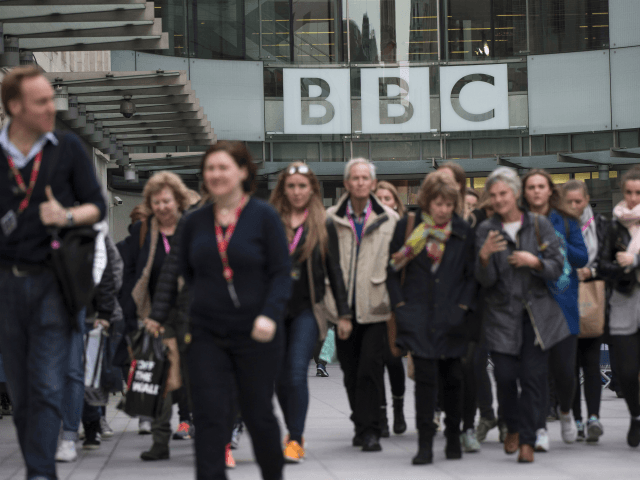Culture secretary Oliver Dowden has said that the BBC must abandon its “narrow urban outlook” and be sure to provide “genuine diversity of thought and experience” if it wants to survive.
The newly-appointed Secretary of State for Digital, Culture, Media and Sport made the remarks at the Enders Media and Telecoms Conference on Wednesday and raised the current government consultation on decriminalising non-payment of the TV tax (which sustains the BBC) as well as the upcoming mid-term review of the BBC Charter which expires in 2027.
Asking the questions whether the BBC “truly reflect[s] all of our nation and is it close to the British people”, Mr Dowden hinted that the BBC failed to observe the national mood on the EU when it embraced the Remain position, saying: “If we’re all honest, some of our biggest institutions missed, or were slow to pick up, key political and social trends in recent years.”
“The BBC needs to be closer to, and understand the perspectives of, the whole of the United Kingdom and avoid providing a narrow urban outlook,” the culture secretary continued, saying that “diversity” in itself was not enough, “But also making sure there is genuine diversity of thought and experience.”
The remarks come after a senior BBC editor declared it was the broadcaster’s duty to be “woke” and make politically correct, ethnically-diverse casting even if it is historically incorrect or gross abuse of an original literary source.
Diversity Report Reveals Gays, Minorities Hugely OVER-represented in UK Television https://t.co/rqdbOUPplL
— Breitbart London (@BreitbartLondon) February 27, 2020
The culture secretary also said that recent Ofcom research “shows the perception of news impartiality is currently lower for some public service broadcasting channels than commercial channels such as Sky and CNN”, adding that therefore “the need for that genuine impartiality is greater than ever”.
A poll from late last year revealed that 48 per cent of Britons do not trust BBC journalists to tell the truth, compared to 44 per cent who did. Another showed that two-thirds think the taxpayer-funded broadcaster is biased. It is no wonder that half of Britons want the licence fee scrapped and for the media behemoth to earn its own money either through advertising or a subscription service, the latter an option reportedly being considered by the government.
Number 10 recently lifted a boycott of the notoriously Europhile and liberal-biased BBC Radio 4 Today programme, in light of the coronavirus pandemic. While claiming that the ministerial boycott had “actually been welcomed by many”, the Today programme’s host, Nick Robinson, wrote in The Spectator this week that BBC presenters were also culpable for contributing to “tetchy and unproductive standoffs” on-air of which Britons “had grown weary”.
Mr Robinson, who himself had tried, and failed, to ‘cancel’ conservative writer Douglas Murray through an Offence Archaeology ambush last year, admitted: “To be fair to politicians, I think that is a comment on us as much as them.”
“It will always be a vital part of our role to hold to account those with power — in government, business or anywhere in public life. What the last few weeks have reminded us, though, is that this is far from the only function of an interview. There is a role for conversation as well as confrontation; enquiry not just cross-examination; explanation instead of disputation,” he added, signalling that BBC should learn its lesson from the effect of the government’s shut-out.
BBC: Having a Family with Children Supports Slavery https://t.co/98iENvXixR
— Breitbart London (@BreitbartLondon) February 24, 2020
While media minister John Whittingdale has said that a subscription service for the BBC may not be feasible in the coming years because of the technical difficulties of “switching off” the BBC to non-subscribers, that does not save the broadcaster from what is becoming more than its creeping irrelevance affecting revenue.
Last month, former Conservative MP Michael Portillo said that the BBC cannot survive its current TV licence model because the younger generations are tuning out and watching subscription services, instead, often opting not to buy the licence at all. Similar analysis came from the UK’s media watchdog, Ofcom. A report from February revealed that 200,000 people had cancelled their licence in a one-year period, almost exclusively the proportion going up month by month.
BBC Warns It Has ‘Reported’ People Critical of Poem About ‘Non-Binary’ Haircut Struggles https://t.co/6RqFkxBfs6
— Breitbart London (@BreitbartLondon) February 21, 2020

COMMENTS
Please let us know if you're having issues with commenting.